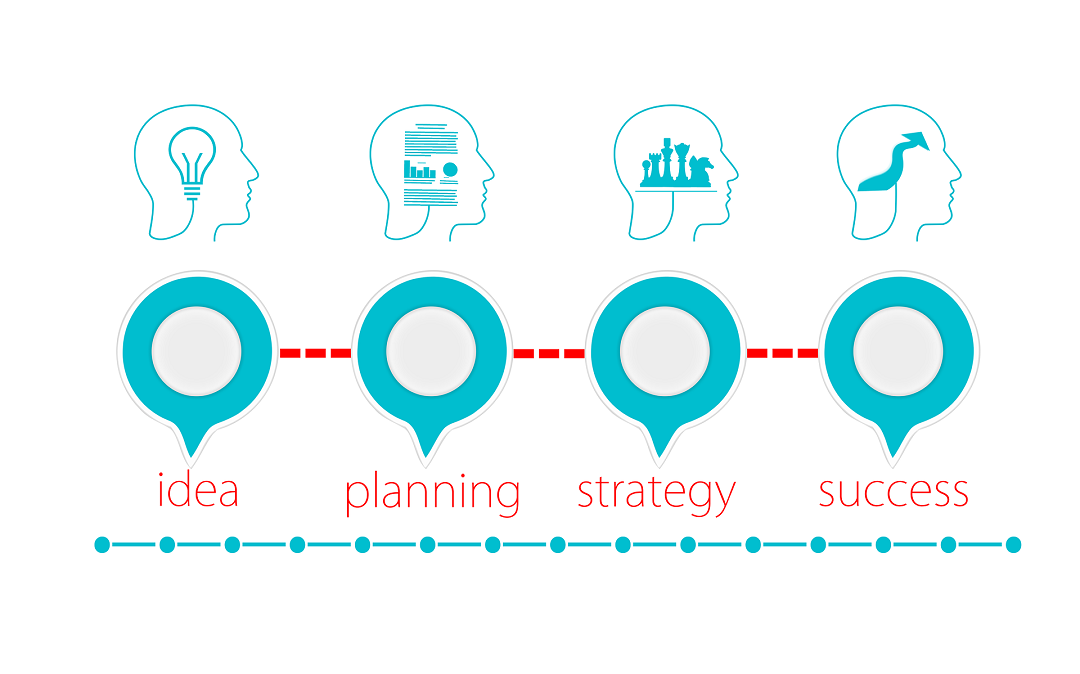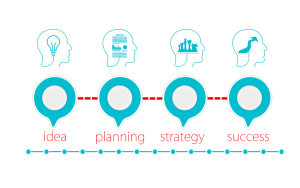Setting the right work goals can be challenging, especially when you’re unsure of your full potential. This is where understanding your strengths becomes crucial. By taking the HIGH5 strengths assessment, you gain valuable insights into your natural talents, providing a solid foundation for setting meaningful and achievable work goals. Having tangible work goals that align with your strengths not only keeps you motivated but also ensures you’re on track to achieve objectives that truly resonate with your innate abilities. This strengths-based approach to goal-setting can significantly enhance your career trajectory and job satisfaction.
These goals will not only benefit in the short term but also in the long run. Often a key to a successful career is all about setting work goals that will help catapult you into new experiences and opportunities.
In this article, we’ll discuss some examples of work goals and how to set your own. Let’s get right into it.
What Are Work Goals?
Work goals are specific objectives that you want to achieve in your professional life. They can be anything from getting a promotion to learning a new skill.
The key is to make them measurable and achievable so that you can track your progress and stay motivated. For example, a work goal might be to “make it to as many daily team meetings as possible”.
You can measure this by tracking how many you’ve attended. An achievable work goal might be for you to attend at least 75% of team meetings of the acceptable number of meetings.
Tracking this is important because you’ll have a clear picture of how close or far away from reaching the work goals you are.
Work goals should align with your inherent strengths and relate directly to your overall professional life and career development. By taking the HIGH5 strengths assessment, you can gain valuable insights into your natural talents, allowing you to set work goals that not only keep you motivated over the long term but also leverage your unique abilities. This strengths-based approach to goal-setting ensures that your objectives are not only achievable but also energizing, as they’re rooted in your innate capabilities.
Don’t worry about setting difficult-to-achieve or generic work goals for now – those will come later when you have more experience.
Pro Tip From HIGH5
Leverage your strengths when setting work goals. Use the results of your HIGH5 assessment to identify areas where you naturally excel and align your goals with these strengths. This approach will make your goals more attainable and enjoyable to pursue.
10 Benefits of Setting Work Goals
- Helps you stay focused and motivated
- Encourages you to take risks and push yourself
- Helps you learn new skills and grow your career
- Keeps you accountable
- Prevents stagnation in your career
- Helps you achieve more in a shorter amount of time
- Teaches discipline and planning
- Shows your boss that you’re ambitious and want to move up the ladder
- Improves work-life balance by giving you something to look forward to outside of work
- Boosts self-confidence
10 Examples of Work Goals
- Get a promotion
- Learn a new skill
- Earn a raise
- Finish a major project at work
- Become more efficient with your time
- Take on additional responsibilities at work
- Start your own business on the side
- Make more sales or get more customers
- Increase productivity by 25%
- Attend all weekly team meetings
Get a promotion
Promotions can range from being promoted within your existing company to leaving your current position and starting a whole new career path. An aptitude assessment can give a deeper insight into your professional preferences.
To get a promotion, you need to know exactly what is required of someone at the next level. Doing the right research will help you determine which positions are likely to lead to greater responsibility or higher salaries so that you can set accurate work goals for yourself.
Remember it’s important not to be too aggressive with this goal by setting unrealistic expectations. If there isn’t another position available soon, promote your skill set by “acting like an executive” even if your title doesn’t reflect that yet.
Learn a new skill
Improving your skill set, particularly in areas that complement your natural strengths, is one of the main ways you can advance your career and leave your mark in the workplace. The HIGH5 strengths assessment can guide you in identifying which skills to develop. For instance, if one of your top strengths is ‘Problem Solver,’ you might focus on learning advanced analytical tools or decision-making frameworks. By aligning new skills with your inherent strengths, you’re not just expanding your capabilities—you’re amplifying your unique value proposition in the workplace.
Your company likely offers opportunities to improve yourself, but don’t limit yourself by waiting for these opportunities to arise.
Look into other options like workshops, courses, conferences, and seminars that will keep you updated with new skills.
Adding a new skill or ability means that you’re making yourself more valuable to an employer (allowing them to pay you more money).
It also shows initiative so they are less likely to let you go in the future because they know other companies would be lucky to have an experienced, skilled candidate like you.
Earn a raise
The importance of earning a raise should not be underestimated. If you’re curious about how much you should be receiving or what your current rate is, check out PayScale, Glassdoor, and Salary.com.
Finish a major project at work
A great way to show you are capable of more responsibility is to finish a big project. Demonstrating that you can lead other employees, coordinate resources, and meet deadlines (even in the face of adversity) will set you apart in an employer’s mind.
For example, if the company needs to overhaul its website for SEO purposes but hasn’t gotten around to it yet, volunteer yourself. You’ll not only impress your manager by offering to lead the entire project but also learn new skills that will help with future projects.
Become more efficient with your time
Time management is an essential skill to have in a work environment. When you manage your time properly, you can get more done and allow room for side projects or extra hours that could lead to a promotion.
Some great ways of becoming more productive include:
- Get organized – everything from your desk, computer, email inbox, and phone messages should be organized in a way that is easy to follow. You will never feel like you are drowning in the amount of information coming at you when it’s all “neatly” organized.
- Prioritizing – this step may seem obvious but often gets overlooked when looking at how much needs to be done every day. Identify the must-do tasks and start there instead of wasting precious time on what is least important.
Take on additional responsibilities at work
As mentioned before, it’s important to be a team player and contribute as much as you can. Adding extra responsibilities that go above and beyond your role will show your employer that you are reliable and willing to do whatever is necessary for success.
When volunteering for a new project or task, make the first move by asking if there is anything else you can help with around the office.
Sometimes managers won’t ask because they think you have enough work already but don’t be afraid to politely ask anyway.
Start your own business on the side
Whether you want to be your boss or need something to bring in extra income, creating a successful business on the side has its perks.
You can get creative about what type of business you start (one that will complement your current job or one that requires full-time attention) and, if it’s successful enough, slowly take more hours away from work and move into working for yourself.
Make more sales or get more customers
If you’re not reaching targets at work then take time out to find new ways to improve.
The best way to make more sales (or get more customers) could be by building relationships with colleagues so they pass on your details when they have a lead or coming up with cost-effective advertising campaigns.
Increase productivity by 25%
If you don’t have enough work to do, find new ways to improve your daily routine by getting more done in the same amount of time.
Whether it’s setting up a divide-and-conquer system or automating time-consuming tasks, productivity is something that can only be improved with hard work and dedication.
Attend all weekly team meetings
It’s important to attend these in case anything changes in the schedule etc., but there’s no need to sit through them if they’re not necessary for your role.
If you don’t have to be there then just let your boss know so they don’t think you’re not doing your part when you get on with other tasks.
10 Professional Work Goals for 2023
With the start of a new year, everyone has specific work goals set up that will help them achieve success. These are some of the more common professional work goals right now.
Take a course to sharpen your skills
Websites such as High5test.com offer comprehensive strengths assessments that help you discover your top five strengths and the skills best suited for development in your life. By taking the HIGH5 test, you gain deep insights into your natural talents and potential areas for growth. Armed with this self-knowledge, you can then look into relevant courses that not only sharpen your existing skills but also cultivate new ones that complement your strengths. This targeted approach to skill development ensures that your learning efforts are aligned with your innate capabilities, leading to more effective personal and professional growth.
Whether it’s online or an evening class, taking time to improve your skills is a great way to impress employers and show your commitment.
Learn a new tool (or 5)
Whatever industry you’re in, there are always new software programs being launched that have the potential to make lives much easier.
These types of tools include web apps, social media branding programs, or something similar to help manage your workflow or daily activities. Investing in yourself by learning these new skills will give you an advantage over others in the same role.
Improve your public speaking and presentations
Public speaking is not everyone’s cup of tea but, when done right, it can be an incredibly powerful way to convey information to large groups of people.
Whether it’s at work or in small group meetings with peers, investing time into becoming a better public speaker is essential to success.
Research other departments
Improving your knowledge of what goes on outside of your immediate area will give you more perspective and allow you to work more efficiently with those around you too.
If you want to become a master at multitasking or build strong working relationships then learning about the bigger picture is key.
Improve team collaboration and communication skills
How can we expect to work together as a cohesive unit if we aren’t communicating effectively? Whether it’s through emails or instant messages (or even face-to-face), building stronger connections with our colleagues will only help us accomplish goals more easily.
Build your network
Everyone has a network that they can call upon to ask for advice or guidance on specific topics.
Building your network of contacts should be something you do regularly, even if it’s just by meeting new people at industry events. It takes time but will reap rewards in the long run.
Research a competitor
Competitors are constantly finding ways to one-up each other and this means that if you’re not careful, they could quickly overtake your position in the marketplace.
Take some time out to understand how they work and what sets them apart from others like them – then look into how you can develop your product or service accordingly.
Get better at time management
When trying to accomplish many work goals, having a strict routine in place is essential. Whether it’s delegating tasks to team members or planning out your day ahead of time, time management is one skill that will help you succeed.
Find new challenges in your role
If your role doesn’t change regularly the chances are you’ll become bored pretty quickly.
While staying within the same company can be comforting, rising through the ranks and taking on bigger projects is an excellent way to ensure success. Planning out ways on how you can do this will make goal-setting much easier.
Become a business owner
Once you’ve learned what it takes to become a business owner and have created an excellent plan for how this could be achieved, the possibilities are endless.
Whether it’s creating your product or even building something from the ground up, becoming a business owner can be extremely rewarding and help you accomplish goals quickly.
5 Tips To Help You Achieve Your Work Goals
Let’s now speak about the 5 tips that will help you to get work done and achieve your goals:
- Write them down
- Share them
- See them
- Time them
- Make them SMART
Write them down
The first step in achieving your work goals is to write them down. Putting things on paper makes them real and forces you to be accountable.
Even if you pick just one goal, make sure to keep track of the progress you make towards achieving it by referring back to your list frequently.
Share them
The next step is to share your goals with someone you can trust. This gives you two things: accountability and support.
If you’re scared of failing, let your colleagues know that if you don’t achieve them they won’t be held accountable.
See them
Take some time out to visualize achieving the goal. Remember that this is something that you want to happen, so make it as real in your mind as possible by imagining how good it will feel when you’ve reached your objective.
Time them
If possible, specify a timeline for when you’d like to complete each task before adding it to your list – even if the target date isn’t set in stone.
Knowing how much time is required makes it easier for you to set smaller targets along the way.
Make them SMART
Finally, make sure your goals are SMART: Specific, Measurable, Achievable, Relevant, and Time-bound. To enhance this approach, incorporate insights from your HIGH5 strengths assessment. For example, if ‘Strategist’ is one of your top strengths, you might set a goal to develop a new business strategy within three months. This goal is not only SMART but also aligned with your natural talents. By integrating your strengths into your SMART goals, you create objectives that are not just well-defined and achievable, but also energizing and intrinsically motivating.
By defining what is required of you in each task, you’ll be able to stay on track more easily and accomplish your work goals with ease.
Pro Tip From HIGH5
Use your HIGH5 strengths as a filter when setting SMART goals. Ask yourself how each goal allows you to leverage your unique strengths. This strengths-based approach to goal-setting can increase your likelihood of success and lead to greater job satisfaction.
Frequently Asked Questions About Work Goals
What are the 3 types of work goals?
- Short-term work goals e.g. “Go to the gym 3 times a week” – this is achievable in the short term.
- Long-term work goals e.g. “Earn 10 million by 2030” – this is very broad and requires breaking down the task into further steps down the line.
- SMART work goals e.g. “Take a course in cloud computing that will allow me to advance my career within a year” – these are specific, measurable, achievable, relevant, and time-bound which means they have all been written with clear actions needed for achievement.
What work goals should I set?
Start with your long-term goals because these are the big things you want to achieve in life. Once you’ve got that sorted out, work on your short-term goals which are more specific and can be broken down into achievable chunks.
Think about any gaps in your skillset where certain products could help you to complete a task quickly or accomplish an objective smoothly. If something is missing, it’s often the first step to setting up a goal so that you can ultimately get better at it.
How do you write a work goal?
The best way to write a goal is by being SMART – this means making sure it’s Specific, Measurable, Achievable, Relevant, and Time-bound.
Make sure you know exactly what you need to do so that your objective is clear and can be measured for success.
Case Studies, Academic, and Research-Based Sources:
- Locke, E. A., & Latham, G. P. (2002). “Building a Practically Useful Theory of Goal Setting and Task Motivation.” American Psychologist.
- Bandura, A. (1991). “Social Cognitive Theory of Self-Regulation.” Organizational Behavior and Human Decision Processes.
- Klein, H. J., Wesson, M. J., Hollenbeck, J. R., & Alge, B. J. (1999). “Goal Commitment and the Goal-Setting Process.” Journal of Applied Psychology.
- Doran, G. T. (1981). “There’s a S.M.A.R.T. Way to Write Management’s Goals and Objectives.” Management Review.
- Latham, G. P., & Locke, E. A. (1991). “Self-Regulation Through Goal Setting.” Organizational Behavior and Human Decision Processes.
- Deci, E. L., & Ryan, R. M. (2000). “The ‘What’ and ‘Why’ of Goal Pursuits: Human Needs and the Self-Determination of Behavior.” Psychological Inquiry.
- Ryan, R. M., & Deci, E. L. (2000). “Intrinsic and Extrinsic Motivations: Classic Definitions and New Directions.” Contemporary Educational Psychology.







